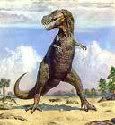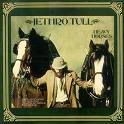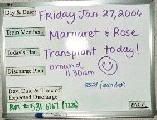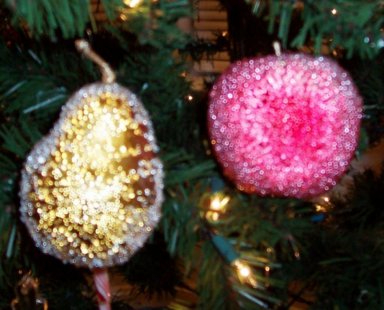It has been two months since I have written an entry. There are a few reasons for this. I've been sick for the last month. I have been hospitalized in Hershey Medical Center for the last three weeks. I'm doing better now. I am going home tomorrow. I'm really excited about it. I will write another entry in a day or two upon returning home. I hope you continue to read my blog when I begin writing more regularly. Take care.
Monday, October 20, 2008
Thursday, August 28, 2008
I Was a Guest Editor's Pick
I want to thank Jude of My Way for choosing me as a Guest Editor's Pick in Magic Smoke on August 8. It was an honor to be chosen among those she selected. If you haven't checked out her blog, please visit; it's an interesting read.
Thursday, August 21, 2008
Happy 5th, JLand
I wanted to write an entry tonight because this is the 5th Anniversary of AOL Blogs. I couldn't let this day go by without saying what JLand means to me.
Saturday, August 9, 2008
My cancer is not back
Tuesday, July 15, 2008
Bad News in My Blood Test Results
Thursday, June 26, 2008
The Man Who Hates Blogs
Tuesday, May 27, 2008
A Snapshot of My Mom's Life
Monday, May 19, 2008
I Fell in the Shower and Injured My Neck
Sunday, April 6, 2008
Life Under Thundering Jet Engines
Saturday, March 29, 2008
Bad News -- I Have Five Cavities
Monday, March 17, 2008
I Don't Appear to Be Having a Relapse
Monday, March 10, 2008
Could I be having a relapse?
My Cool Things -- Battling Tops and Jonny Quest
Here are more of "My Cool Things." This entry is the last in this series.
 Take away a nine year old boy's action toys and you'll have a sulking child. At this age, my favorite store-bought action game was called "Battling Tops," which may not be familiar to you. This was 37 years ago, after all. Could they possibly still make this game? In case they don't, I'll give you a quick description of it. The game had a round, concave, arena-like playing area with four player stations at equal distances around the perimeter. The playing pieces were four plastic tops, several inches high. Each player got one top and a small plastic ring with a length of thread attached to it. The ring fit over the player's index finger and the thread wrapped tightly around a top quite a few times. The top was then placed in the player's station, which was designed to hold the top steady until the game began. All players pulled their rings at the same time, causing the tops to spin furiously in the concave playing area. From this point on, all the players could do was watch and hope. The tops would whack repeatedly into each other, making a surprising amount of noise, until all the tops except one either fell over or were flung out of the arena, often at impressive speeds. The winner was the player who had the last top still spinning.
Take away a nine year old boy's action toys and you'll have a sulking child. At this age, my favorite store-bought action game was called "Battling Tops," which may not be familiar to you. This was 37 years ago, after all. Could they possibly still make this game? In case they don't, I'll give you a quick description of it. The game had a round, concave, arena-like playing area with four player stations at equal distances around the perimeter. The playing pieces were four plastic tops, several inches high. Each player got one top and a small plastic ring with a length of thread attached to it. The ring fit over the player's index finger and the thread wrapped tightly around a top quite a few times. The top was then placed in the player's station, which was designed to hold the top steady until the game began. All players pulled their rings at the same time, causing the tops to spin furiously in the concave playing area. From this point on, all the players could do was watch and hope. The tops would whack repeatedly into each other, making a surprising amount of noise, until all the tops except one either fell over or were flung out of the arena, often at impressive speeds. The winner was the player who had the last top still spinning.  When I was 10 years old, my favorite cartoon was an action-packed thriller called Jonny Quest. Unlike any other cartoon, the considerable violence on this program was realistic: not graphic, but definitely far more believable than Bugs Bunny/Road Runner pseudo-violence. Bad guys usually met with swift and imaginative deaths. I wasn't interested in seeing anyone die, but I loved the high level of action. I also loved the realistic detail of the animation.
When I was 10 years old, my favorite cartoon was an action-packed thriller called Jonny Quest. Unlike any other cartoon, the considerable violence on this program was realistic: not graphic, but definitely far more believable than Bugs Bunny/Road Runner pseudo-violence. Bad guys usually met with swift and imaginative deaths. I wasn't interested in seeing anyone die, but I loved the high level of action. I also loved the realistic detail of the animation. Sunday, March 9, 2008
My Cool Things -- Aircraft and Dinosaurs
Here are more of "My Cool Things." I'll finish this series in the next entry.
 When I was seven years old, my family moved to a suburb of Chicago. Our new home was modest, pleasant, and agreeable in every way, except that it was located under a high-traffic, low-altitude approach path to O'Hare Airport. At first we didn't like the constant noise from the jet engines, but surprisingly, we adjusted to it quickly. Somehow we learned to tune out most of the constant roaring.
When I was seven years old, my family moved to a suburb of Chicago. Our new home was modest, pleasant, and agreeable in every way, except that it was located under a high-traffic, low-altitude approach path to O'Hare Airport. At first we didn't like the constant noise from the jet engines, but surprisingly, we adjusted to it quickly. Somehow we learned to tune out most of the constant roaring. Like many eight-year-old boys, I loved dinosaurs. I didn't have any dinosaurtoys or action figures, which my parents probably would have bought for me if it had ever occurred to me to ask for any. Instead, I spent hours memorizing every available fact and theory about these ancient reptiles. My information was provided by many oversized, heavily illustrated books produced for my age group, which my Dad did buy for me.
Like many eight-year-old boys, I loved dinosaurs. I didn't have any dinosaurtoys or action figures, which my parents probably would have bought for me if it had ever occurred to me to ask for any. Instead, I spent hours memorizing every available fact and theory about these ancient reptiles. My information was provided by many oversized, heavily illustrated books produced for my age group, which my Dad did buy for me. Wednesday, February 27, 2008
My Cool Things -- Apollo 11, The Starship Enterprise, and Star Trek
Here are three more of "My Cool Things." I'll finish the last of "My Cool Things" in the next two entries.
 The Apollo 11 mission gripped the world as one of the most compelling nine days in history. The mission boasted the first manned Moon landing on July 20, 1969. That day at 10:56 PM EDT, when Neil Armstrong became the first human to stand on the Moon's surface, my eyes were glued to our television screen. I was seven years old, but my parents let me stay up late to watch an event which would fascinate me for the rest of my life. Despite being absorbed in the NASA images of Moon rocks and dust being collected for analysis on Earth, I felt sad for astronaut Michael Collins. He had to remain orbiting the Moon while Neil Armstrong and Buzz Aldrin explored the lunar surface and got all the glory.
The Apollo 11 mission gripped the world as one of the most compelling nine days in history. The mission boasted the first manned Moon landing on July 20, 1969. That day at 10:56 PM EDT, when Neil Armstrong became the first human to stand on the Moon's surface, my eyes were glued to our television screen. I was seven years old, but my parents let me stay up late to watch an event which would fascinate me for the rest of my life. Despite being absorbed in the NASA images of Moon rocks and dust being collected for analysis on Earth, I felt sad for astronaut Michael Collins. He had to remain orbiting the Moon while Neil Armstrong and Buzz Aldrin explored the lunar surface and got all the glory.
Scientifically accurate details from the Moon's surface captivated me. The astronauts appeared to bounce across the surface in one-sixth of Earth's gravity. Lunar dust which was kicked up fell directly back to the surface, leaving no floating cloud in the moon's airlessness. And when the astronauts left the Moon, the previously motionless American flag, which had been planted at the landing site, whipped as in a furious wind. This effect was caused by powerful rocket exhaust as the Lunar Module rose from the lunar surface. The astronauts' return to Earth on July 24 left me with a profound sense of wonder that the mission had been a complete success. Knowing that humans have walked on another world is astronomically cool.
 Star Trek's famous Starship Enterprise first voyaged to distant, imaginary worlds on September 8, 1966, nearly three years before Apollo 11. Science fiction can leap beyond factual science where rockets are the most advanced propulsion system available. The Enterprise journeyed between stars at incredible speeds by using warp engines, which physicists rightly reject as pure fantasy. But that doesn't stop millions of us from thoroughly enjoying the many fictional tales from the Star Trek universe. Obviously, none of the five Star Trek television series or 10 big screen movies ever tried to explain warp drive, but we have been given some tantalizing details.
Star Trek's famous Starship Enterprise first voyaged to distant, imaginary worlds on September 8, 1966, nearly three years before Apollo 11. Science fiction can leap beyond factual science where rockets are the most advanced propulsion system available. The Enterprise journeyed between stars at incredible speeds by using warp engines, which physicists rightly reject as pure fantasy. But that doesn't stop millions of us from thoroughly enjoying the many fictional tales from the Star Trek universe. Obviously, none of the five Star Trek television series or 10 big screen movies ever tried to explain warp drive, but we have been given some tantalizing details.  In high school, the original Star Trek series fascinated me. Let me speak from experience: This television program never would have worked without futuristic technology and adventure, but another aspect of the show kept me focused intently on the series. Like many viewers, I watched Star Trek to follow the relationships and experiences of its cast of characters. In some ways I saw a reflection of myself and others in the members of this starship crew. For example, I admired Captain Kirk's courage and self-confidence. I wished that I could be like him in these ways, but his quickness to use force and his smooth success with women made it difficult for me to relate to him. I was a painfully shy teenager who was socially awkward and was virtually an outcast among my fellow students. No, Kirk was not a reflection of me. He reminded me more of the popular, athletic boys at school. Then there was Dr. McCoy; he genuinely cared about people, but he was prone to being irritable. Also, he was suspicious of science and technology even though he was a physician and a scientist himself. No, McCoy also was not a reflection of me. I did care about people, but I didn't want to be socially abrasive like McCoy. And again unlike him, I saw science as a great hope for the future of humanity. McCoy reminded me of some adults I had met or heard of.
In high school, the original Star Trek series fascinated me. Let me speak from experience: This television program never would have worked without futuristic technology and adventure, but another aspect of the show kept me focused intently on the series. Like many viewers, I watched Star Trek to follow the relationships and experiences of its cast of characters. In some ways I saw a reflection of myself and others in the members of this starship crew. For example, I admired Captain Kirk's courage and self-confidence. I wished that I could be like him in these ways, but his quickness to use force and his smooth success with women made it difficult for me to relate to him. I was a painfully shy teenager who was socially awkward and was virtually an outcast among my fellow students. No, Kirk was not a reflection of me. He reminded me more of the popular, athletic boys at school. Then there was Dr. McCoy; he genuinely cared about people, but he was prone to being irritable. Also, he was suspicious of science and technology even though he was a physician and a scientist himself. No, McCoy also was not a reflection of me. I did care about people, but I didn't want to be socially abrasive like McCoy. And again unlike him, I saw science as a great hope for the future of humanity. McCoy reminded me of some adults I had met or heard of. Friday, February 1, 2008
My Cool Things -- Krissy, Jethro Tull, and Baroque Music
Here are some more of "My Cool Things."
 What challenges me is to capture in words the unique beauty that my wife brings to my world. My words won't adequiately describe her, but I'll try anyway. Krissy loves me; when she first confessed her deep feelings nine years ago, the revelation stunned me. No other woman had ever loved me, and I had lost hope that any woman ever would. That her commitment to our relationship hasn't wavered for almost a decade is still a source of wonder to me. What she sees in me that other women dismissed as insignificant baffles my mind. But whatever she sees has been compelling enough to keep her with me through two cancers and a bone marrow transplant. And my first cancer was diagnosed just four months after we met! That and her willingness to marry me is amazing. I haven't even mentioned her intelligence, her sense of humor, our mutual interests and values, her imagination and playfulness, her patience, and a long list of other qualities that she has. I could write volumes about what has made our relationship precious and still not cover all the details of why I love her. My wife Krissy is completely cool.
What challenges me is to capture in words the unique beauty that my wife brings to my world. My words won't adequiately describe her, but I'll try anyway. Krissy loves me; when she first confessed her deep feelings nine years ago, the revelation stunned me. No other woman had ever loved me, and I had lost hope that any woman ever would. That her commitment to our relationship hasn't wavered for almost a decade is still a source of wonder to me. What she sees in me that other women dismissed as insignificant baffles my mind. But whatever she sees has been compelling enough to keep her with me through two cancers and a bone marrow transplant. And my first cancer was diagnosed just four months after we met! That and her willingness to marry me is amazing. I haven't even mentioned her intelligence, her sense of humor, our mutual interests and values, her imagination and playfulness, her patience, and a long list of other qualities that she has. I could write volumes about what has made our relationship precious and still not cover all the details of why I love her. My wife Krissy is completely cool.
 I've heard Jethro Tull called the original Alternative Rock band. Musically and lyrically, they are superior to, and far more artistic than, most popular musicians; frequent use of diverse instruments lends their tracks a unique but pleasing sound. Jethro Tull writes largely about the profound social and political issues of our time. A fondness for descriptive detail breathes life into their viewpoints, which are thought-provoking and persuasive. I've enjoyed many of their albums, with the exception of Aqualung, which has a strong atheistic theme. It saddens me to know that they reject religion, but you don't have to agree with everything artists believe to benefit from their work. Jethro Tull's tracks are thoroughly enjoyable; artists who both inform and entertain are doubly cool.
I've heard Jethro Tull called the original Alternative Rock band. Musically and lyrically, they are superior to, and far more artistic than, most popular musicians; frequent use of diverse instruments lends their tracks a unique but pleasing sound. Jethro Tull writes largely about the profound social and political issues of our time. A fondness for descriptive detail breathes life into their viewpoints, which are thought-provoking and persuasive. I've enjoyed many of their albums, with the exception of Aqualung, which has a strong atheistic theme. It saddens me to know that they reject religion, but you don't have to agree with everything artists believe to benefit from their work. Jethro Tull's tracks are thoroughly enjoyable; artists who both inform and entertain are doubly cool.
 Are you familiar with baroque music? If all of you were, my job in this paragraph would be unnecessary. I have to assume, though, that some of you are drawing a blank. Baroque was a period in European music between 1600 and 1750, marked by an elaborate and ornamental style, which preceded the Classical music era. Now before your eyes glaze over, let me assure you that this won't become a lecture in music history. Elaborate and ornamental -- what does that mean, right? Trying to understand any kind of music by a textbook definition without actually hearing some of it performed is an almost hopeless task. What I would like to do, if you've never heard baroque played, is urge you to give it a chance. Maybe you've heard classical music and didn't like it. You still might find that you like baroque. Let me give you a popular example to listen to and let you judge for yourself: Vivaldi's Spring Concerto If you liked this, I hope you seek out more baroque. If you didn't, that's all right too. Liking baroque music or disliking it are both naturally cool.
Are you familiar with baroque music? If all of you were, my job in this paragraph would be unnecessary. I have to assume, though, that some of you are drawing a blank. Baroque was a period in European music between 1600 and 1750, marked by an elaborate and ornamental style, which preceded the Classical music era. Now before your eyes glaze over, let me assure you that this won't become a lecture in music history. Elaborate and ornamental -- what does that mean, right? Trying to understand any kind of music by a textbook definition without actually hearing some of it performed is an almost hopeless task. What I would like to do, if you've never heard baroque played, is urge you to give it a chance. Maybe you've heard classical music and didn't like it. You still might find that you like baroque. Let me give you a popular example to listen to and let you judge for yourself: Vivaldi's Spring Concerto If you liked this, I hope you seek out more baroque. If you didn't, that's all right too. Liking baroque music or disliking it are both naturally cool.
This is the second entry of a five part series.
Sunday, January 27, 2008
My Cool Things -- My Transplant, Aussie Hat, and God
In the sidebar of this journal I will be adding several pictures from time to time. I have chosen things that I think are cool. I'm calling them "My Cool Things." I've decided to tell you about them in a few entries.

 Australian hats have a unique style that brings to mind the Outback, exotic animals, and adventure. My wife wanted to buy me a wide-brimmed hat to keep the sun off my face and neck since bone marrow transplant recipients are at high risk for skin cancer. I picked an Aussie hat that was distinctive and good looking. We chose a hat over sunscreen because shade is more effective than chemicals, and a fine hat can improve your appearance. A little help from Australia is welcome, because avoiding a third cancer can only be cool.
Australian hats have a unique style that brings to mind the Outback, exotic animals, and adventure. My wife wanted to buy me a wide-brimmed hat to keep the sun off my face and neck since bone marrow transplant recipients are at high risk for skin cancer. I picked an Aussie hat that was distinctive and good looking. We chose a hat over sunscreen because shade is more effective than chemicals, and a fine hat can improve your appearance. A little help from Australia is welcome, because avoiding a third cancer can only be cool. God has been my friend since before I was born, even during those years when I spent my time in rebellious pursuits. He was with me during my treatment for cancer, especially during my many, sometimes life-threatening, complications to my bone marrow transplant. God kept me alive through those difficult times because He has a plan for my life. Doctors, medications, and transplants are several ways God heals us of our illnesses. Supernatural miracles may be the exception rather than the rule; He can heal us that way, but He often chooses to help us help each other. This does not diminish God's role in the treatments that lead to our cures. I am deeplygrateful to God and my doctors for my recovery. Having a friend like God is eternally cool.
God has been my friend since before I was born, even during those years when I spent my time in rebellious pursuits. He was with me during my treatment for cancer, especially during my many, sometimes life-threatening, complications to my bone marrow transplant. God kept me alive through those difficult times because He has a plan for my life. Doctors, medications, and transplants are several ways God heals us of our illnesses. Supernatural miracles may be the exception rather than the rule; He can heal us that way, but He often chooses to help us help each other. This does not diminish God's role in the treatments that lead to our cures. I am deeplygrateful to God and my doctors for my recovery. Having a friend like God is eternally cool.Thursday, January 24, 2008
it's the 2nd anniversary of my bone marrow transplant
Saturday, January 19, 2008
raising baby rabbits (conclusion)
our baby rabbits eating pink clover
Here's the conclusion to the story I began in my last entry.
Friday, January 18, 2008
raising baby rabbits
Saturday, January 12, 2008
JLand Photo Shoot #124

Here's my entry for JLand Photo Shoot #124. The subject is 'a close up'. If you want to be part of this, you can find it in my wife's journal Sometimes I Think.
This is the first time I've participated in a photo shoot. I've enjoyed the experience. I've never taken close ups before; it was challenging and fun.
Here are some shots of my wife's and my Christmas ornaments.





